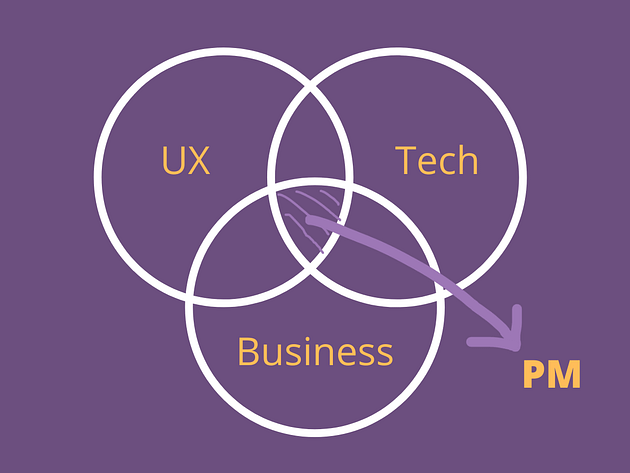Product Management is talked about a lot these days. The first time I heard this term, I felt someone wanted to say “Project Management”.
The next thought was “Is this something to do with designing tangible products? Those complex blueprints or prototypes designed using some fancy tools?”
It took me a while to understand that product management is not just prototyping tangible products but way beyond it.
What is Product Management?
Product Management is a function that deals with a lot of things like market research, user experience design, prioritizing product backlog, product launch, and much more.
In short, product management is everything that happens right from the ideation of a product till its launch and even post its launch.
The product manager is the person who is responsible for product management. Simple?
It’s not as simple as it sounds.
Gartner defines product management as
“The process of conceiving, defining, delivering, monitoring and refining products in, and withdrawing products from, a market in order to maximize business results”
Product Manager HQ defines product management as
“a practice that a company adopts to oversee a product’s development and eventual launch”
280Group defines product management as
“The role and function within an organization that is responsible for a product’s overall success”
One of the most famous explanations of product management is given by Martin Eriksson is “product management is the intersection between business, user experience, and technology”

Does this mean a product manager should be an expert in all three of these?
In ideal scenarios, finding such a person is difficult.
The product manager should have knowledge of all three circles represented in the diagram above. His role lies at the intersection.
This field started getting a lot of attention in recent years. The concept was used by FMCG industries in the earlier days.
With the advent of technology and the boom in the digital product industry, Agile Product Management is something highly talked about these days.
Agile is all about easily and quickly adapting to change & agile product management is taking the product through multiple iterations in order to satisfy stakeholders’ expectations, deliver value and generate ROI in the fastly-evolving world.
In simplest words, managing the product through its lifecycle is known as Product Management.
But is this important?
There are already UX teams, Business teams, and tech teams doing their work well.
Do we really need product management?
Let’s understand the importance of product management.
Why Product Management is important?
Product management is a vast field that comprises mainly market research, user research, business model design, and product development.
If you observe that each of the 4 sections of product management are in themselves a huge subject.
Due to this, the role of a product manager is often referred to as the mini-CEO. The product manager is the CEO of the product he is handling.
In the age of rapidly evolving technology, there are a lot of companies switching to a product-based approach. Especially with the evolution of SaaS companies, product management has become an integral part of organizations.
In order to build a great product, the companies need to be sure of what the market needs, whether the proposed product will help them or not, what will be the ROI, will the end-users use the product, and many such questions.
The product manager helps in not only finding answers to these critical questions but also implementing changes in the product’s vision in an agile manner.
The product manager acts as the hub between the various departments within the organization (sales, marketing, tech, finance, QA, support, etc) as well as the external world.
Without a hub, the entire product vision can go for a toss. There needs to be a person who handles the vision, interacts with internal and external stakeholders, and strives to create value.
That’s where product management comes into the picture.
This is not a field that is popular just in startups and new-age SaaS companies, but also giants like Microsoft, Google, Amazon, etc focus highly on product management and hire a lot of product managers.
Product Manager Vs Project Manager
PM – Usually people use this abbreviation for both product management and project management.
But both these fields are different. Completely different? No!
A product manager sets the product vision while the project manager helps the product manager in the execution part.
A product manager focuses on conducting research, defining product vision & product roadmap, communicating the vision to the various stakeholders, developing a strategic plan to achieve the vision, driving product adoption, and setting priorities by revisiting the roadmap on a regular basis.
On the other hand, a project manager breaks down large complex activities into smaller tasks and assigns them to the team, plans project timelines, allocates resources, monitors the tasks, communicates project progress to the stakeholders, and ensures timely completion of projects.
Though product management and project management are different as per the definitions stated above, in reality, they do overlap.
Around 30% of product management can be considered as project management.
Types of product managers
Having understood what exactly is product management and its importance, understanding the various types of product managers becomes crucial for folks who are planning to switch to product management.
You will find several resources on the internet saying that there are 5 types of product managers or 7 types of product managers and so on.
But primarily, there are 3 main types of product managers.
Even as per McKinsey & Company, there are 3 types of product managers – Technologist, Generalist & Business-oriented.
Technologist
A technologist product manager is a very highly technical person who focuses on technological solutions. Technologists PM work for back-end platforms or complex B2B platforms.
Generalist
A generalist product manager is a person who has technical as well as business acumen & who focuses on user delight. These product managers work on B2C products or frontend for B2B products.
Business-oriented
A business-oriented product manager as the name suggests is from a business background and focuses on scaling up the business. Usually, these product managers work for B2C products.
Product Manager’s Career Path
Usually, people are too much concerned about the career path even before beginning the career. This is very natural.
Gone are the days when career paths were well-defined and rigid.
Today, both people and organizations don’t hesitate from experimenting. Candidates try out various roles while organizations are also opening up to hire candidates with the right attitude and passion.
But if one has to look at the typical career path that one might go through, here is the path defined by the Product Plan:
- Associate Product Manager
- Product Manager
- Senior Product Manager
- Director of Product
- VP of Product
- Chief Product Officer
Scope of Product Management in India
If you are interested and passionate about something, there is always a scope for it!
Product-based companies are evolving in India. With the rise of the startup ecosystem in the nation, an increase in the number of internet & mobile phone users, and changing consumer behavior, product management is booming in India. It is in the growing stage and not everyone is aware about it as a career path.
This is a crucial role for the success of the digital product and hence companies building digital products are not hesitating to invest in a good product manager.
There is a high demand and low supply of product management professionals in India. This indicates that there is a high scope for product management in India.
Just go to any Indian job portal and search the keywords “Product Manager” or “Product Management” and you will find a lot of openings.
How much does a product manager earns in India?
As per AmbitionBox, the average salary of a product manager in India is around INR 16 LPA.
The salary varies on the basis of skills, experience, company and location.
Product management professionals in Bangalore earn more than any other product manager in India.
You can explore in detail about the product manager’s salary by watching this detailed video by UpGrad:
Key skills needed to become a product manager
Without the relevant skills, one cannot excel in the selected career option. Yes, there is a huge scope of product management in India and the salaries provided are lucrative too. That doesn’t mean that anyone can get a good job in product management.
If you want to crack a product management interview, you must have the relevant skillsets and the willingness to learn new things.
Key skills needed in order to become a product manager are:
- Excellent Communication Skills
- Technical Acumen
- Analytical Skills
- Research Skills
- Management Skills
- Design Skills
- Documentation Skills
- Problem-Solving Skills
- Empathy
The list can go on. But these are a few skills needed to become a product manager.
Though one must not have all the listed skills, one must understand the fact that the role of product manager deals with multiple stakeholders and departments & having these skills in any proportion can help the individual in becoming a better product manager.

6 thoughts on “What is Product Management? – Ultimate guide to becoming a product manager in 2023”